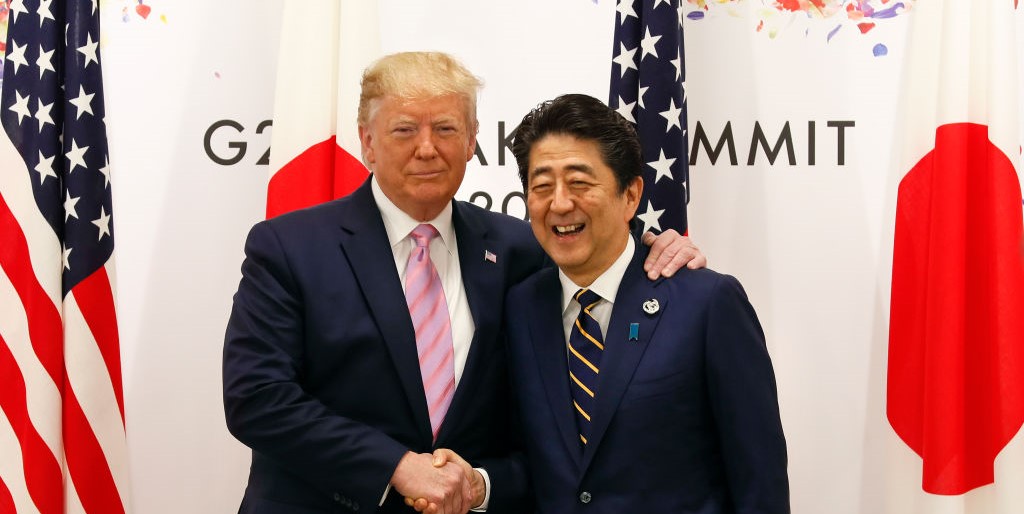
Americans generally view Japan in a positive light, but they are not well informed about the pivotal role the bilateral security alliance plays in US foreign policy. A survey conducted in the US by Charles Crabtree and Kiyoteru Tsutsui suggests that the average American takes Japan for granted.
* * *
With the specter of a cold war with China arising, allies in the Asia-Pacific are increasingly important for the United States, whether in fighting pandemics, negotiating trade deals, or containing territorial disputes. Japan historically has been one of the most important partners for American interests in the region and a steadfast ally in the post-World War II era.
For Japan, too, the U.S.-Japan security alliance has been the cornerstone of its foreign policy for decades, and the Japanese public clearly understands that. Reflecting this understanding, every new security decision in Japan, from the relocation of a U.S.-base in Okinawa to the recent cancellation of Aegis Ashore deployment, spurs intense public debates about the future of the U.S.-Japan alliance.
In contrast, the American public does not seem as well informed about or invested in the U.S.-Japan alliance. To better understand American views about Japan and the U.S.-Japan security alliance, we conducted a novel, national survey of 2,499 residents in August 2019. Our key findings, which will be submitted to a peer-reviewed social sciences journal, are that Americans support Japan, but not that much more than other regional powers, and may be taking Japan for granted as an ally.
We asked respondents a series of questions about which East Asian country is and would be the best partner for America in several areas. Respondents could select from among China, Japan, South Korea and North Korea. While American and Japanese markets are deeply intertwined, only 47 percent of Americans identified Japan as the best current economic partner, with China a close second (39 percent) despite serious tensions in trade relations.
Similarly, even though the U.S.-Japan security alliance is one of the bedrocks of American foreign policy in Asia, just 38 percent of Americans identified Japan as the best military ally. South Korea was second at 30 percent, and China a somewhat shocking third at 23 percent. Thinking about the future, Japan is the favored economic and military partner 20 years from now — by a slim plurality of respondents.
So while Americans generally view Japan in a positive light as a partner, many view other countries as better partners in East Asia — now and in the future. These views might cause one to think that American support for the U.S.-Japan security alliance is in trouble. Yet, 69 percent of the American public support the continuation of this treaty. One might be surprised by this, given President Trump’s continuing insistence that the U.S. should reconsider the “unfair” bilateral pact and demand more cost-sharing by Japan.
We find, though, that Trump’s claims do not affect the American public; randomly reminding people of the president’s opposition to the treaty only increases support for it by 4 percentage points. A potential reason for the generally high level of support is that only 38 percent of the public thinks that the treaty is unfair to the U.S. The American public seems to understand the strategic importance of the U.S.-Japan alliance and the enormous cost-sharing that Japan already accepts better than the American president.
Americans also appear to be confident that Japan is less likely to be a threat to American national interests than the other three countries; only 4 percent of respondents consider Japan to be the biggest threat in the region, either currently or in the future, with the biggest threat today and in 20 years being North Korea (56 percent) and China (44 percent).
The picture that emerges from these results is that the average American takes Japan for granted. Japan is a good ally and not a threat, but is not necessarily the most important partner in the region in the coming years. To be sure, Americans still value partnership with Japan, but these results partially support Japanese concerns about Japan-passing in the U.S. — that the American public looks past Japan and values other countries such as China as the more important Asian partner in the future.
Policymakers in Washington should feel reassured that most Americans support the U.S.-Japan alliance and remain unphased by Trump’s anti-alliance rhetoric. Policymakers in Tokyo, on the other hand, have legitimate reasons to be concerned about the future of the alliance; many in the U.S. see other Asian countries as better economic or military partners than Japan, either now or in the future. Even if Trump’s anti-alliance rhetoric may not affect public perceptions in the U.S. much, it could erode confidence in the alliance in Japan.
Combined with the American public’s seeming nonchalance about Japan, U.S.-Japan relations need a booster shot. On both sides of the Pacific, those who value this alliance should work together to highlight its importance in bringing peace and stability in the region.
Reprinted from The Hill, July 19, 2020.



